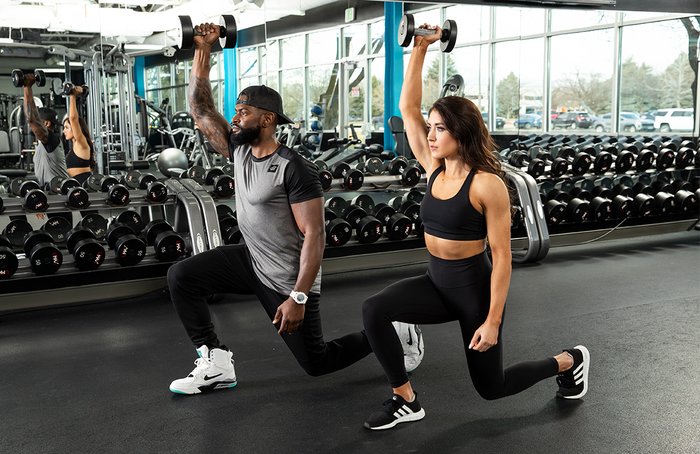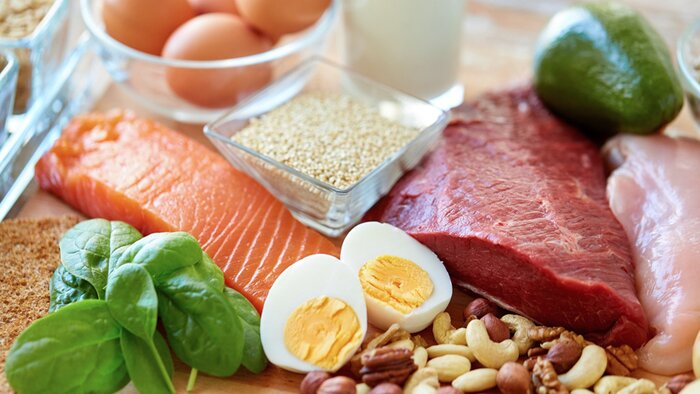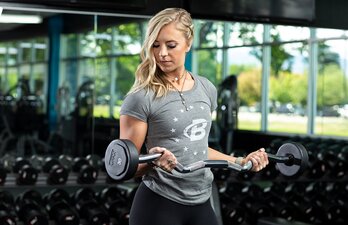New to working out? Let’s give you some easy tips to get you started!
Simply starting a new TV show is hard enough. How can someone possibly be expected to start a new fitness routine? Well, just like a friend suggesting you should “give the show a chance,” we have the same recommendation for working out. After the initial shock to your system, you’ll be well on your way to a healthier, happier you.
The Benefits Of Working Out
Working out can help improve your overall health and fitness level. There have been numerous studies to show how regular exercise can reduce the risk of developing chronic diseases like heart disease, stroke, and diabetes. It can also help improve mental health by reducing stress and anxiety levels.
Plus, starting a workout routine can be a great way to meet new people and make new friends. Working out with others can make the experience more enjoyable and motivating.

Women have unique fitness needs that often go unaddressed, making working out a frustrating experience. But don't worry, we're here to help!
Here are three workout tips specifically for women:
Don't Be Afraid To Lift Heavy
Women often think they need to lighten the load when working out, but this isn't necessarily the case. One of the most common misconceptions about women lifting weights is that it will make them bulky. This simply isn't true. A woman's body is not naturally designed to build large amounts of muscle mass, so it's very unlikely that they will bulk up from lifting weights. In fact, lifting heavier weights can help you torch more calories and provide that muscle definition which will give you that toned look.
Start with a challenging, manageable weight if you're new to lifting. Then, gradually increase the amount of weight you're using and focus on form.
Consistency Is Key
When it comes to working out, there's no magic number of days or hours that you need to hit the gym. What's most important is being consistent. If you can only commit to three days a week, make sure you stick with it and don't skip any workouts. You'll get better benefits from a long-term program that works with your lifestyle. Each week's little progress adds up to big results.
Over time, you can gradually increase the frequency and duration of your workouts. Remember, even 20 minutes of exercise can make a difference, so if you can't fit in a long workout, don't sweat it. Just do what you can and be consistent with it.
Food Is Fuel
Don't cut the calories too low! If you want to see results from your workout routine, you need to make sure you're fueling your body with the right nutrients. Eating a healthy diet is essential for helping your body recover from workouts and perform at its best.
Key nutrients to focus on are protein, carbohydrates, and healthy fats.

Protein
Protein is one of the most important nutrients required by the human body. It is responsible for the growth and repair of tissues, the production of enzymes and hormones, and the maintenance of fluid balance. Protein can be found in both animal and plant sources. Meat, poultry, fish, and eggs, contain all of the essential amino acids needed by the human body. Plant sources, such as legumes, grains, and nuts, also make excellent plant sources of proteins. A protein shake makes a great option for a fast, on-the-go solution that fits your schedule.
Carbohydrates
Carbohydrates are essential nutrients that the body needs in order to function properly. They are the body's main source of energy. They also help to build and repair tissues, regulate blood sugar levels, and produce hormones. Carbohydrates can be found in a variety of foods, including bread, rice, pasta, fruits, and vegetables. Complex carbohydrates (such as those found in whole-grain bread and pasta) are essential because they provide the body with fiber, which helps to regulate digestion.
Healthy Fats
Fats are an essential part of our diet, but not all fats are created equal. Healthy fats, such as Omega-3 fatty acids, are essential for our body to function correctly. They help support cell growth and development, play a role in inflammation, and support cardiovascular health. In contrast, unhealthy fats - such as saturated and trans fats, can contribute to weight gain, heart disease, and other chronic health conditions. It’s important to focus on getting healthy fats from sources like fish, nuts, and seeds while limiting your unhealthy fat intake. By making smart choices about the types of fat you eat, you can help improve your overall health.
Meal Timing
Besides the right nutrients, eating the right foods at the right time can help your body make the most of the exercise you're doing and see better results.
Here’s how to time your meals for optimum results:
Eat a small snack or meal about 1-2 hours before working out. This should include carbs from good sources like vegetables, complex carbs, or nuts. This will give your body the energy it needs to power through your workout.
Avoid eating immediately before working out, as this can lead to indigestion or cramping.
After your workout, refuel with a healthy protein-packed snack, protein shake, or meal to kickstart the recovery process. Seafood, chicken, and turkey are excellent sources of lean protein.
Also, remember to drink lots of water. Staying hydrated will help your body function at its best and can even help reduce fatigue. Aim to drink eight glasses of water per day.
Start Today
Today is the perfect day to start your fitness journey! The sooner you get started, the sooner you'll see results. And remember, every little bit counts. Even if you can only commit to a few minutes of exercise each day, it's better than nothing. Just make sure you're consistent with your workouts and eating a healthy diet. You'll be on your way to reaching your fitness goals in no time!










No comments:
Post a Comment